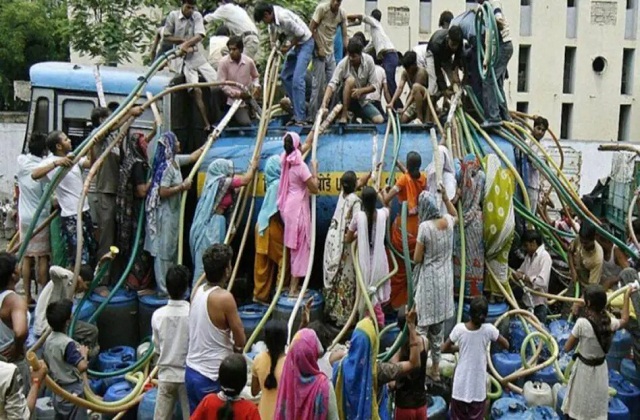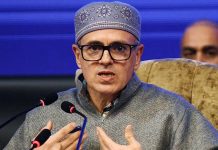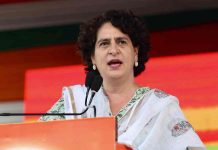
As the assembly elections in Delhi approach, the issues related to water supply, particularly the contaminated water and low water pressure have become a focal point of discussion in the national capital.
For residents of the city, the persistent water problems are not just an inconvenience but a growing public health concern. At some places where water pipelines are available, the water is contaminated with foul smell and bitter taste, there are many areas where water pipelines have not even reached for people to use.
They are only dependent on local water mafia who run private shops where they have installed big water filters along with submersible pumps and sell the water on a per litter basis.
Where there no water pipelines are available, even the water tankers from Delhi Jal Board don’t reach for the people and by when the water is supplied, the drivers or the in-charges of the tankers ask for money in return.
Speaking to Tehelka.com, Abhishek, a resident of Aali village near Sarita Vihar said that the area does not have a water pipeline and the people are dependent upon the local water mafia who have made this issue a money making scheme.
“We don’t have water pipelines here and no water tankers are sent by the Delhi Jal Board, so we have to purchase the water on a per liter basis which has given an upper hand to the water mafia here,” Abhishek said.
People in Wazirabad, near the Jagatpur Road are suffering from the same problem. Here the water pipeline is available but the water is not drinkable so these people are also dependent on the private water sellers.
“There is a tap in every street here but the water is not drinkable. It is so contaminated that nobody uses this water. The taste is bitter and a foul smell comes from this water. We have to buy water bottles from the private shops here,” Tarun, a resident of Wazirabad told Tehelka.com
Mayank Diwakar, who resides in the East of Kailash said that the water tankers don’t come here and if they come they “ask for money”, so we are using our water purifiers in our home.
Meanwhile, in West Delhi’s Dwarka and Uttam Nagar area the water pressure is low and it only comes for half an hour in a day. The water in Uttam Nagar sometimes becomes contaminated and it stinks.
A local from Uttam Nagar who resides near New Holy Public School said, “The water sometimes is very contaminated and the smell is so bad that we can’t use that water for any purpose.”
These issues directly impact the lives of Delhiites, and political parties are likely to face scrutiny over their promises to tackle the city’s water woes.
The condition of the pipelines and filtration systems, and the inability of the Delhi Jal Board (DJB) to meet the growing demand for clean water have fueled dissatisfaction, particularly in localities where access to water is erratic or contaminated.
According to Chief Election Commissioner Rajiv Kumar, the city will go for vote in a single phase on February 5 and the counting is scheduled for February 8.













